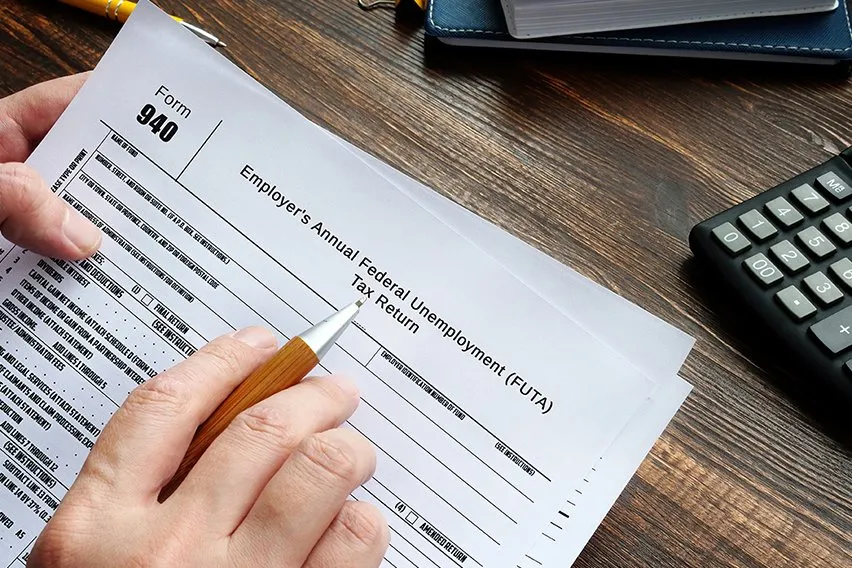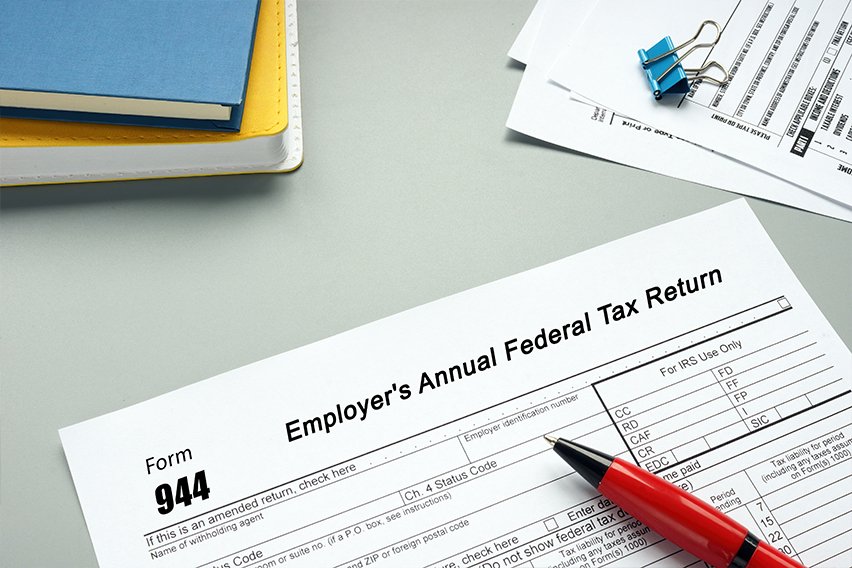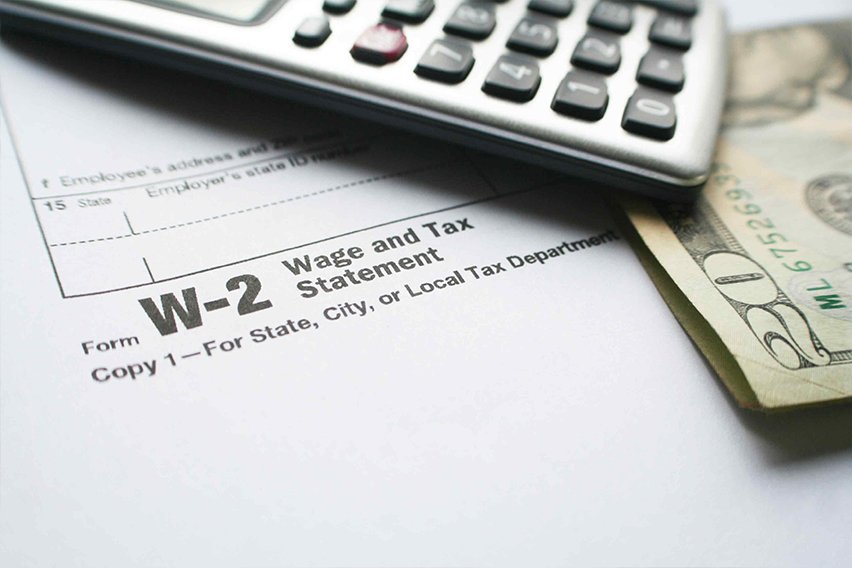What is Form 940?

In any small business, paperwork has the tendency to take over the tax season. As an employer, it’s your responsibility to have the right documents ready to file.
Employment tax liabilities include Form 940 — which is required by the IRS for businesses with employees on payroll.
So, what is a Form 940 and why does it matter for your business?
Here’s What We’ll Cover:
Who Counts in Taxable FUTA Wages?
Form 940 Defined
Every calendar year, each business with employees must file Form 940 to determine the amount of unemployment tax due to the IRS. The form lists the total payroll to all employees, and determines the total amount of unemployment tax included in your annual federal taxes required by the company for each employee.
The Federal Unemployment Tax Act (FUTA) is a process set by the IRS to assist unemployed workers that have lost their job at no fault of their own so that they may receive unemployment compensation. A Form 940 determines how much unemployment tax is owed by the employer to the IRS.

What is a Form 940 Used for?
The FUTA was created to help states meet their unemployment benefits obligations. While most unemployment funds are paid out by individual states, the federal government aids in assisting states that may need extra help providing unemployment compensation to W-2 employees.
FUTA tax payments are used as ‘backup’ unemployment funds in case of natural disasters or economic distress. These payments are required by all business owners with employees on payroll.
If an employee loses their job at no fault of their own, FUTA tax payments are used to assist in providing unemployed workers with unemployment benefits.
How is a Form 940 Determined?
The form is used to compute the amount of unemployment tax that the business owner must pay when doing their payroll taxes for that standard calendar year.
As of 2024, the payroll tax is based on the first $1500 of taxable wages paid to each employee in the calendar quarter.
Adjustments are made on payments exempt from Federal Insurance Contributions Act (FICA). FUTA-exempt payments include specific fringe benefits, life insurance, and dependent care assistance.
FUTA tax liability is required by employers but it is not taken out of employee payroll–it’s up to employers to set aside the right amount in each tax period.
Who Counts in Taxable FUTA Wages?
A business must file Form 940 when they’ve paid wages of $1,500 or more to their employees in each calendar quarter. The unemployment tax rate is based on how many employees are on taxable payroll.
Note that:
- A business must pay FUTA taxes if they have one or more employees
- Employers must count all full-time, part-time, and temporary employees
- Owners or partners are not included in filing Form 940
- Independent contractors, sole proprietors, and partnerships are not included
Form 940 Filing Requirements
No matter where you are in your small business venture, as long as you have one or more employees, a Form 940 is required.
There are some filing requirements when it comes to filing a FUTA tax form:
- Your tax payments may be due before the official due date for the 940 report form (due January 31st).
- If your FUTA tax is more than $500 per year, you must deposit at least one payment per calendar quarter.
- A business must file Form 940 when they’ve paid taxable wages of $1,500 or more to their employees in each calendar quarter.
How to Fill Out Form 940
Once you’ve hired employees and are paying them wages, you must file and submit Form 940 for the annual tax period.
To fill out Form 940, you need to collect information from your employees regarding the taxable wages that you’ve paid them.
In filling out a form 940, be sure to:
- Provide information about your business and your state unemployment tax status.
- Account for any adjustments to gross pay to employees that are exempt from FUTA tax (specific fringe benefits, life insurance, and dependent care assistance)
- Calculate adjustments for state unemployment tax payments
You can find step-by-step instructions on the IRS website here.

Key Takeaways
Form 940 is a valuable and necessary document used by the IRS to determine taxable FUTA wages from each business paying compensation to workers.
IRS Form 940 reports an employer’s unemployment tax payments for each employee on payroll. A Form 940 is required for employee wages of $1,500 or more paid to employees in each calendar quarter
Employers must account for full-time, part-time, and seasonal employees when filing their tax return. Adjustments are made on payments exempt from Federal Insurance Contributions Act (FICA). FUTA-exempt payments include specific fringe benefits, life insurance, and dependent care assistance.
The filing deadline is January 31st, and if your FUTA tax is more than $500 per year, you must deposit at least one payment per calendar quarter.
More Tax Resources for Businesses
- What Forms Do Businesses Need to File Taxes?
- Are Business Tax Returns Public?
- 9 Tips About Small Business Income Taxes
RELATED ARTICLES

 What Is a 944 Form?
What Is a 944 Form? 7 Best Sales Tax Software For 2025
7 Best Sales Tax Software For 2025 Does Overpaid Tax Get Refunded Automatically?
Does Overpaid Tax Get Refunded Automatically? Form W-2 Box 1: A Complete Guide
Form W-2 Box 1: A Complete Guide IRS Form 7200: A Detailed Explanation Guide
IRS Form 7200: A Detailed Explanation Guide What is the NOPAT Formula? – Net Operating Profit After Tax
What is the NOPAT Formula? – Net Operating Profit After Tax